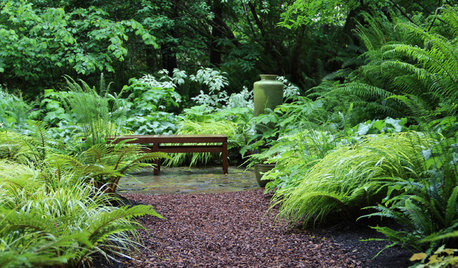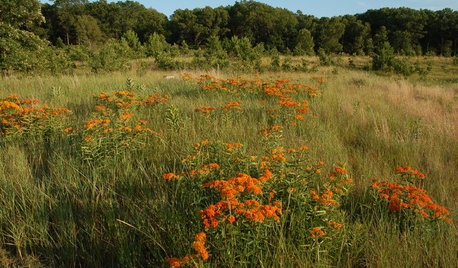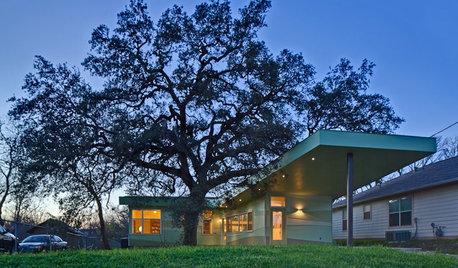Sterilized Soil a Bad Idea?
SteveHillage
9 years ago
Related Stories

GARDENING GUIDES10 Solutions for Soggy Soil
If a too-wet garden is raining on your parade, try these water-loving plants and other ideas for handling all of that H2O
Full Story
GARDENING GUIDESThe Poop Scoop: Enrich Your Soil With Good Old Manure
Get over the ick factor already — this natural super-ingredient for soil has so many benefits, you'll wonder why you ever went chemical
Full Story
GARDENING GUIDESHow to Stop Worrying and Start Loving Clay Soil
Clay has many more benefits than you might imagine
Full Story
GARDENING GUIDESHow to Pick a Mulch — and Why Your Soil Wants It
There's more to topdressing than shredded wood. Learn about mulch types, costs and design considerations here
Full Story
GARDENING AND LANDSCAPINGBid Bad Garden Bugs Goodbye and Usher In the Good
Give ants their marching orders and send mosquitoes moseying, while creating a garden that draws pollinators and helpful eaters
Full Story
GARDENING GUIDESThe Art of Green Mulch
You can design a natural garden that doesn’t rely on covering your soil with wood and bark mulch
Full Story
UNIVERSAL DESIGNHouzz Tour: Accessibility Meets Contemporary on an Austin Hilltop
Banish all thoughts of sterile schemes. This new build in Texas features universal design in warm, comfortable style
Full Story
GARDENING GUIDESGet on a Composting Kick (Hello, Free Fertilizer!)
Quit shelling out for pricey substitutes that aren’t even as good. Here’s how to give your soil the best while lightening your trash load
Full Story
GARDENING GUIDESNew Ways to Think About All That Mulch in the Garden
Before you go making a mountain out of a mulch hill, learn the facts about what your plants and soil really want
Full Story








poaky1
johns.coastal.patio
Related Professionals
Camas Landscape Architects & Landscape Designers · Prairie Ridge Landscape Architects & Landscape Designers · Essex Landscape Contractors · Hayden Landscape Contractors · Lees Summit Landscape Contractors · Natick Landscape Contractors · Setauket-East Setauket Landscape Contractors · Wanaque Landscape Contractors · York Landscape Contractors · Atlantic City Decks, Patios & Outdoor Enclosures · Justice Decks, Patios & Outdoor Enclosures · Kearns Decks, Patios & Outdoor Enclosures · Mebane Decks, Patios & Outdoor Enclosures · Redlands Decks, Patios & Outdoor Enclosures · Sugar Land Decks, Patios & Outdoor EnclosuresKimmsr
toxcrusadr
johns.coastal.patio
toxcrusadr
yardtractor1
Kimmsr
johns.coastal.patio
toxcrusadr
cohan
gardengal48 (PNW Z8/9)
toxcrusadr
gardengal48 (PNW Z8/9)
Laurel Zito